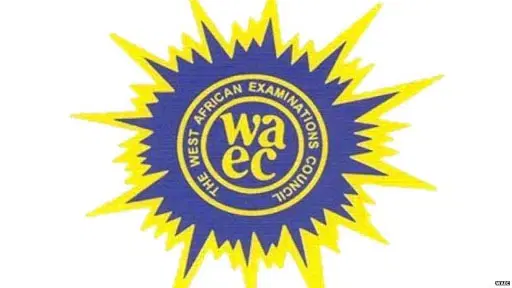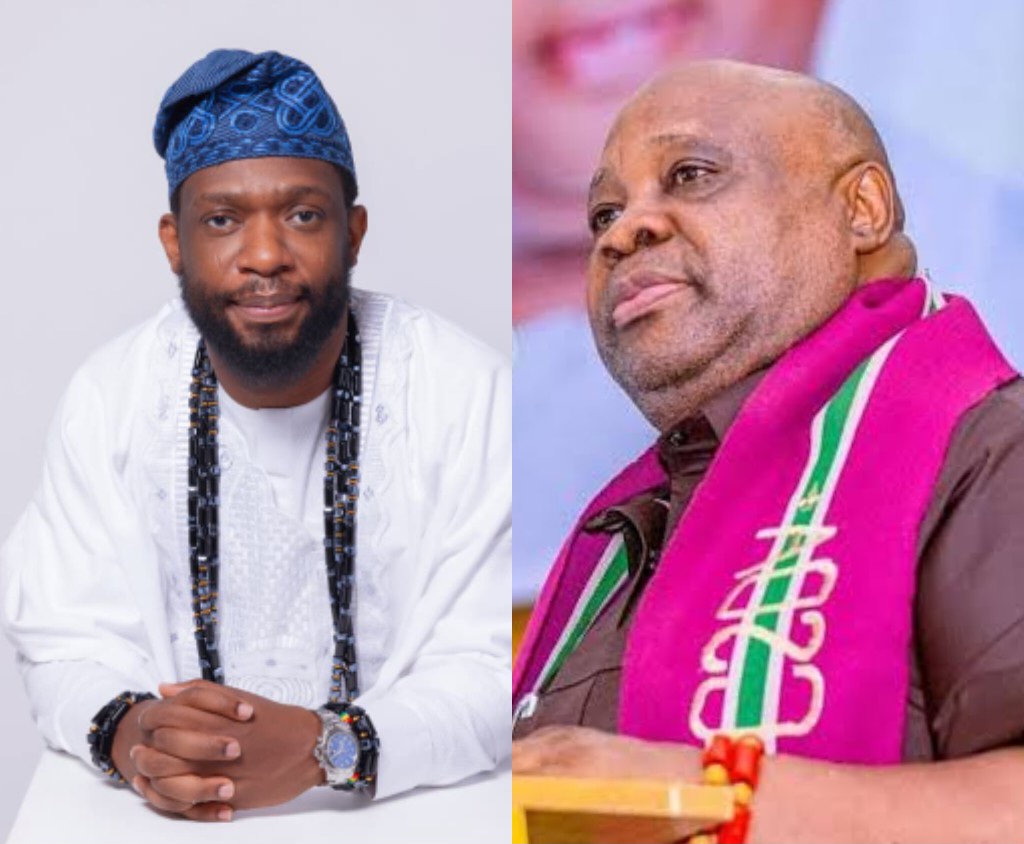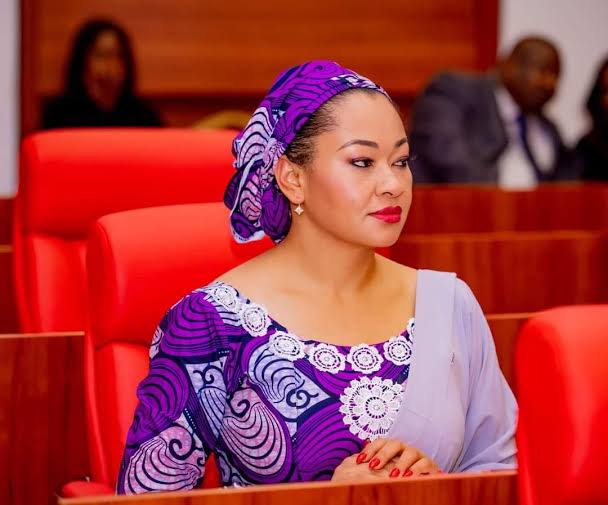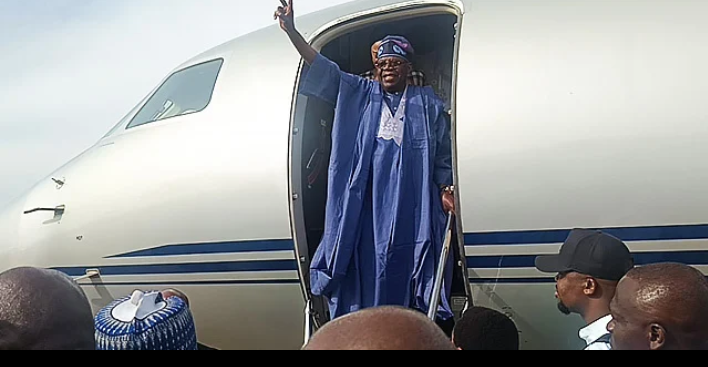As an interventionist agency, the Niger Delta Development Commission (NDDC), with the mandate to drive the process of developing Nigeria’s oil-rich region was established by the NDDC Act of 2000. Of course, the mandate of the agency was unambiguous; it is to facilitate the rapid, even and sustainable development of the Niger Delta into a region that is economically prosperous, socially stable, ecologically regenerative and politically peaceful.
It is no longer news that the Niger Delta produces nearly 75 per cent of the nation’s export earnings, but the news is that 43 per cent of the region’s population still lives below poverty line. This paradox is due primarily to ecologically unfriendly exploitation of oil and gas resources that expropriate the region’s indigenous people and their right to these resources. Hence, the Niger Delta Development Commission is determined to change this narrative and bring back prosperity to its land and people.
There is no gainsaying the fact that the story of the oil rich region has changed for the better since the coming on board of Dr. Samuel Ogbuku as Managing-Director of the Commission.
Since he took over the helm of affairs at the commission, he has been able to articulate the demands of the people of the area, embarked on practical initiatives to complete the gargantuan projects which he met and conceived and carrying out the execution of several other projects for the benefit of the people, and by so doing, calmed the restiveness which abinitio signposted the region.
At the Public Private Partnership (PPP) Summit which was held at the Eko Hotel, Lagos State on Tuesday, April 25, 2023, Dr. Ogbuku made it clear that since its inception, the NDDC has tried to faithfully deliver on its mandate to fast-track the development of the Niger Delta region as envisioned in its enabling Act.
Speaking on the theme of the Summit: “Rewind to Rebirth” and re-igniting the importance of stakeholders in the agency’s engagements, Ogbuku disclosed that as part of the efforts to renew and reposition the NDDC, the Governing Board has stepped up collaboration with various stakeholders. “We have started engagement with the key stakeholders, such as the oil companies, who contribute three per cent of their operational budget to the Commission; the state governments, traditional rulers, Civil Society Groups, youth organisations and contractors.” He disclosed that the NDDC has met with members of the Oil Producers Trade Section (OPTS), of the Lagos Chamber of Commerce and Industry, who are no doubt critical stakeholders of the Commission. “This group, which embodies the International Oil Companies (IOCs), stand out for us because we need their cooperation to get full and prompt remittances of their contributions as prescribed by law,” the MD stated.
He maintained that it is was important to engage stakeholders in projects conceptualisation and execution, adding that the oil producers work in the communities and sometimes have first-hand information of the needs of the local people. “We want them to engage with us in project selection. Also, we need the oil producers to sometimes avail us with their technical expertise in project management and monitoring. In other words, we are embarking on this journey of developing the Niger Delta with the full participation of all stakeholders.” He was categorical when he said that the NDDC cannot shoulder the enormous responsibilities of developing the Niger Delta region alone, adding that all hands must be on the deck, especially to provide the necessary funds for the tasks.
Speaking further, he disclosed the agency’s collaboration plans with the stakeholders saying, “In working with stakeholders, we have resolved to make our 2024 budget an all-inclusive one that accommodates the interests of all key players in the Niger Delta region. To achieve this, we have charged our Budget Committee to give stakeholders the opportunity to tell the NDDC the kind of projects they want in their areas, so that they can be included in our budget.”
Of course, it was against this background that the current Board and Management of the agency, in its bid to do things differently, so as to effectively drive sustainable development in the region, decided to adopt the Public Private Partnership (PPP) model to provide alternative source of funding for key development projects and programmes. Ogbuku said “In January, 2023, we constituted a Management Committee on Public Private Partnership to drive our vision of fast-tracking the development of the Niger Delta region. The Committee is expected to review all the Commission’s existing partnerships as well as explore new partnerships that will result in enduring regional projects.
“Our approach to partnership is to engage specific sectors in their areas of strength. For instance, the private sector is better equipped with expertise, resources, and technology to drive economic growth and development. By partnering with this sector, we can successfully leverage these resources to implement our programmes and projects.
“Another stakeholder we cannot do without is the government at all levels. The government is critical in promoting sustainable development. By partnering with government agencies and departments, participating in government-led initiatives, and advocating for policies that promote sustainable development, we can access government resources, policies, and programmes that support our development objectives. We are keen on more collaboration with state and local governments to implement programmes and projects that address their communities’ specific needs,” he added.
Ogbuku also said that Civil Society Organisations (CSOs), and Community-Based Organisations (CBOs), are essential partners to be courted. “These organisations understand the needs and aspirations of people in the Niger Delta region. By collaborating on specific programmes and projects, drawing from their knowledge and resources, and involving them in planning and implementation, we can ensure that our programmes and projects align with the needs and aspirations of people in the region.”
Dr. Ogbuku, a man with the Midas touch, fully appreciates the significance of institutional collaboration as a way for promoting sustainable development in the region. “We need the assistance of foreign institutions such as multilateral agencies, foreign government agencies, donor agencies and multinational corporations, to promote sustainable development in the Niger Delta region. Multilateral agencies such as the World Bank, African Development Bank (AfDB), United Nations Development Programme (UNDP), and International Monetary Fund (IMF) can provide technical support, funding, and policy advice to the NDDC. These agencies have wide experiences promoting sustainable development in developing countries and can give us valuable insights and direction.”
Other foreign government agencies he was looking at include the United States Agency for International Development (USAID), the Department for International Development (DFID) in the UK, and the German Agency for International Cooperation (GIZ), which he disclosed, could equally partner with NDDC to promote sustainable development in the region.
“These agencies can provide funding, technical assistance, and policy guides, as well as collaborate with us on specific programmes and projects. Multinational corporations such as Shell, Chevron, ExxonMobil, and Total, have a significant presence in the Niger Delta region. We expect them to collaborate more with us in executing legacy projects. They have what it takes to provide funding, technical assistance, and expertise in environmental management, community development and corporate social responsibility.
“Our ‘Rewind to Rebirth’ initiative, which is the theme of this summit, is a strategic vision designed to recalibrate our engagement with the Niger Delta and the Commission’s overall intervention implementation plan. Embedded in this initiative include exploring more avenues for funding, for better technical expertise, for higher yielding varieties of crops, as well as opportunities for collaboration and investment in the Niger Delta region. This initiative aligns with the NDDC mandate, as well as the Sustainable Development Goals 17, which focuses on partnerships. This is the stirring story of our partnership with the SPDC Joint Venture on the celebrated Ogbia-Nembe Road, in Bayelsa State.
“As we share ideas on how to ‘Rewind to Rebirth’ for the sustainable development of the Niger Delta region, we are looking forward to partnering with both local and foreign investors, captains of industries, and the corporate world in building a better future for the region. With a region as blessed with immense natural and mineral riches, with boundless youthful energy and optimism, and the remarkable possibilities of our shared dreams here, the future of the Niger Delta looks bright, indeed.”
As a realist, he did not forget to mention some of the challenges confronting the NDDC development roadmap which he said included inadequate funding for the Commission, emanating from inconsistent statutory contributions from the Federal Government and failure of some oil and gas companies operating within the region to remit their contributions in line with the NDDC Act; Failure of ownership of the Masterplan by the sub-nationals and other key stakeholders; Frequent changes in the leadership of the Commission and Consistent delays in the passage of the Commission’s budget by the National Assembly, among others.
He assured: “Today, we have introduced a lot of innovations that have helped in boosting the morale of our staff. We have also restructured the administrative system of NDDC by going back to the 13 Directorates recognised in the NDDC Act. It was necessary to reorganise the administration to enhance better service delivery. We are showing in our operations, through our example and conduct, how diligence, due process and transparency are key ingredients to building confidence and trust among all partners and stakeholders. We are committed to not just being transparent, but we want to be seen to be transparent.”
According to the Managing Director, since the rejuvenation of the agency, there has been lots of achievements by the orgainsation leading to the commissioning of several completed projects. Recently, we commissioned three roads in Bayelsa State to mark the beginning of many other project inaugurations across the nine Niger Delta states. In the coming weeks, some of our major projects will be commissioned. Among such is the the 132/33KVA sub-station constructed by the Commission in Okitipupa, which will provide electricity for over 2,000 communities spread across five Local Government Areas in Ondo State.
“Another key project that and ready for inauguration is the Ogbia-Nembe Road, which was jointly funded by the Shell Petroleum Development Company (SPDC), and the NDDC. That partnership delivered the 25.735-kilometre road, running through the most challenging terrains imaginable in the region. The project has seven bridges, 53 culverts and traverses 9.15 kilometres of swampy terrain. Apart from showcasing our mega projects, we have also developed a new concept of working with the Niger Delta Chamber of Commerce in the training of youths and young entrepreneurs in the Niger Delta region.
For optimization of the youth programme, the NDDC Youth Volunteer programme was changed to a Youth Internship Programme where youths will be attached to organisations for one year to learn different skills. “To facilitate this new scheme, we are developing a database that will capture unemployed youths and entrepreneurs in the region. Indeed, we have young entrepreneurs in the region that we want to showcase to the world.
Stakeholders and political leaders used opportunity offered by the summit to shower encomiums on the minister of Niger Delta Affairs, Umana Okon Umana and the Managing-Director of the commission, Dr. Ogbuku, for engendering public confidence in the agency through their commitment to good governance.
The chairman of the Senate Committee on Appropriations, Sen. Matthew Urhoghide; Senator-elect and former chairman of the All Progressives Congress (APC), Adams Oshiomhole; former Managing Director of the NDDC, Mr Timi Alaibe and former Director-General of the Nigerian Maritime Administration and Safety Agency (NIMASA), Mr. Dakuku Peterside, were among those, who acknowledged the transformation of the commission under Umana and Ogbuku leadership.
The participants and stakeholders commended President Muhammadu Buhari for returning sanity and order in the running of the NDDC and noted the salutary impact of the president’s action on peace and stability in the Niger Delta.
The former Governor of Edo State, Oshiomhole wondered why anyone would run a government agency for three years with a handpicked Sole Administrator where there was no provision for such aberration in the enabling law that set up the agency, noting that such anomaly could never inspire public confidence in the NDDC. All the key speakers at the summit commended the Minister and the Management of the NDDC for the positive trend at the commission.
Earlier, while declaring the summit open on behalf of the Vice-President, Umana said his decision to reset and reposition the NDDC has made the commission attractive to development partners in the private sector “because it is now run on the template of international best practices in public governance.”
He emphasised that high on the template of good governance which he brought to the NNDC was ensuring there was a clear distinction between supervision and interference. “I have made sure there is no ministerial interference in the management of the NDDC,” Umana said.
He said that the proof of the rising positive perception of the NDDC is evident in the enthusiastic response of private sector players to the invitation to dialogue on the way forward for the development of the Niger Delta.
“The event we are witnessing today ties back to my Action Plan to reset and reposition the NDDC, following my appointment as Minister,” Umana said, adding “I have faithfully implemented the Action Plan for which the Commission was inaugurated.
“We also set in motion an era of accountability and transparency by publishing in national newspapers, a list of 2,506 completed projects executed by the Commission under the Buhari administration from 2015 to 2022. The feedback to this level of commitment to openness in public governance has been tremendous.
“And today, we are witnessing an enthusiastic response by stakeholders and development partners to the invitation to dialogue on the development of the Niger Delta because there is trust in public institutions that are run according to law and due process. Public-Private Partnership would not be realistic in a government institution that is burdened with trust deficit”.
In his goodwill message at the summit, former NDDC Managing Director, Chief Timi Alaibe, expressed delight at the PPP initiative of the new leadership of the Commission.
He said: “This is the first time in 15 years that I am attending an NDDC function. This is because the new board is charting a new course that is impressive. Far back, after the implementation of the Master Plan, we decided on an implementation plan which involved all key stakeholders. We decided that the Master Plan cannot be funded by the government alone. We needed the private sector; that is why I support holding the summit in Lagos, Nigeria’s financial capital. The concept of rewinding and rebirth is sweet to the ears.”
In another goodwill message, the former Managing Director of NIMASA, Dr. Dakuku Peterside, applauded the NDDC Board and Management for striving to leave legacies in the region.
According to him, “the founding fathers of the NDDC intended that the NDDC should be a catalyst for development. The PPP arrangement is a new way of engendering positive outcomes. There must be a fusion between the private sector and the public sector. It is important to bring in the resources and expertise of the private sector.”
Meanwhile, more accolades have come the way of the commission with the signing of a memorandum of understanding with the United States Consulate and a United States-based firm, Atlanta Global Resources Inc., AGRI, to build a railway network that will connect the nine states of the Niger Delta region.
The ceremony, which was part of the one-day Public Private Partnership Summit organized by the Commission in Lagos on Tuesday, will provide locomotives, construct railway lines and operate same in the oil producing states of Rivers, Ondo, Edo, Delta, Bayelsa, Akwa Ibom, Cross River, Imo and Abia.
The high point of the summit was the signing of an MOU by the Managing Director/CEO of the NDDC, Dr. Samuel Ogbuku, on behalf of the Commission; Mr. Chamberlain Eke, on behalf of the United States Consulate, and Mr. Tony Akpele, on behalf of AGRI, for the construction of a railline across the NDDC mandate states.
Work on the feasibility stages of the project, perhaps the biggest in the history of the Commission, is expected to start immediately.
During the signing of the MoU, Dr. Ogbuku disclosed that the NDDC was determined to re-navigate the process of its intervention in the Niger Delta so that it can achieve its mandate “of facilitating the rapid, even and sustainable development of the Niger Delta into a region that is economically prosperous, socially stable, ecologically regenerative and politically peaceful.”
He stated that the MOU represented a big harvest for the NDDC from the PPP Summit.
Other dignitaries that graced the occasion included the Executive Secretary, Nigerian Content Development and Monitoring Board (NCDMB), Engr. Simbi Wabote, who also delivered a paper titled “Innovative Funding and Sustainable Development for the Niger Delta”. Wabote, prior to his appointment, was an Executive Director of the Shell Petroleum Development Company (SPDC) Nigeria, Limited, and the General Manager, Business and Government Relations of Shell Group in Nigeria.
Others who delivered keynote addresses included Kayode Kyalidson. He was the man who advised the federal and state governments on a donor-funded transport initiative between 2009 and 2016. Prior to that, he was Team Lead for Transport sector reform at the BPE, where he was responsible for developing and implementing PPP concession strategy; Nimi Wilson-Jack. Mr Wilson-Jack is a sound legal practitioner of more than 39 years experience and a former Secretary-General of the Nigerian Bar Association (NBA). He is also a former Director of the Rivers State Bureau for Public Procurement. He formerly served as Special Assistant to the former Minister of Aviation.
Janita Ferentinos is a certified PPP Consultant and trainer with over 20 years’ experience. She is passionate about teamwork and the creation of effective partnerships and the stakeholder engagement, especially for the benefit of the underserved in the health, education and agricultural sectors; and Oliver Everett, a former CEO of Common Wealth Enterprise and Investment Council and Chair of Commonwealth Business Forum, Kigali 2020 Taskforce. He has vast international experience working with multi-state organisations, including government, private and wider public sector operations; and Abubakar Suleiman, popularly called Abu. He a Nigerian Banking and Economics professional and the current Managing Director/Chief Executive Officer of Sterling Bank, a leading Commercial Bank in Nigeria were among other crème de la crè
me in the society and industry gurus.

Advertisement






